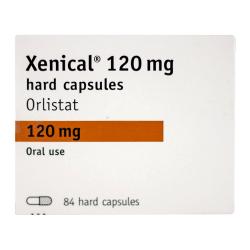Login to your account
- Prescription included
- Genuine medication
- All-inclusive service - No hidden fees
- Free next-day delivery
Weight Loss
Get weight loss medication with an online prescription
It is important to be a healthy weight. If you are overweight, it can be hard to do daily activities and you can develop serious health conditions.
If you are overweight, losing even a small amount of weight can be beneficial for your overall health. Trying to lose weight can be frustrating and stressful. However, you don’t have to do it alone. At euroClinix, we offer clinically proven weight loss treatments to help you kick-start your journey.
Available Treatment(s)

- New weight-loss injection pen
- Clinically proven results
- Reduces appetite

- Safe and effective weight-loss pill
- Specifically targets dietary fat
- Supports gradual, sustainable weight loss

- Daily injection
- Works in up to 12 weeks
- Effective weight loss treatment

- Effective weight loss tablet
- Helps reduce appetite
- Promotes gradual weight loss

- Newly approved injection for weight loss
- Clinically proven results
- Once weekly injection

- Semaglutide tablets
- Reduces your appetite
- Tablet taken once daily
What is obesity?
Obesity is a condition characterised by an excess of fat tissue in the body. It is an ever-growing health crisis in the UK and across the world. A recent NHS survey found that 36.2% of UK adults are overweight whilst 28% are obese.
Unhealthy weight gain has led to more people having diabetes, high blood pressure, and high cholesterol. This also means that there are more deaths related to obesity.
As scary as it may sound, it’s not too late. Losing weight is your best chance of improving your health.
What is the ideal weight?
While there is no perfect weight, your weight is classified medically by your BMI.
Your body mass index (BMI) is a tool used to determine whether your weight is healthy relative to your height.
BMI measurements are classified as follows:
- under 18.5 - underweight
- 18.5 – 24.9 - healthy range
- 25.0 – 29.9 - overweight
- 30.0 - 39.9 - obese
- 40.0 and above - morbidly obese
Your doctor will also consider your measurements (e.g. your waist circumference) and get a picture of your overall health.
BMI isn’t accurate for some people. For instance, if you’re pregnant or have a lot of muscle mass, BMI will not give you an accurate measurement.
What are the causes of obesity?
The primary causes of weight gain are overeating and little exercise.
Regularly eating more calories than your body needs leads to fat gain. This is because your body takes what it needs to keep you energised and stores the excess as body fat. If you don’t exercise, these excess calories are not burnt off and can contribute to weight gain.
Certain risk factors can mean you’re more likely to gain weight, such as:
- taking certain medications (e.g. HRT, hormonal contraceptives and antidepressants)
- genetics
- old age - you’re less likely to be active
- certain medical conditions (e.g. Cushing’s disease or PCOS)
- quitting smoking
That doesn’t mean you can’t lose weight and follow a healthy lifestyle. You may just have more difficulty than others.
Why should you lose weight?
Losing weight is essential for a long and healthy life; it’s not just for aesthetic reasons. It improves both your physical and mental health.
Physical benefits of weight loss
The main reason to lose weight is to be healthy. If you are overweight, it increases your chances of developing several health conditions, including:
- type 2 diabetes - excess weight may make cells less responsive to insulin, which increases the risk of diabetes and high blood sugar levels
- high blood pressure - excess weight can put more strain on your heart, leading to high blood pressure
- high cholesterol - obesity is associated with increases in LDL cholesterol (bad cholesterol) and decreases in HDL cholesterol (good cholesterol)
- erectile dysfunction - excess weight is associated with ED, with one study finding that men with a high BMI had a 30% increased risk of ED compared with men who had a normal BMI - conditions associated with obesity, such as diabetes, are also correlated with ED
- heart disease - 1 in 6 cases of heart disease in the UK are caused by obesity, due to the strain that excess weight puts on your cardiovascular system.
- asthma - obesity is associated with higher rates of asthma, especially in women
- certain types of cancer - excess body fat can lead to increased inflammation and hormonal changes, which can damage cells and increase the risk of cancer
- acid reflux - being overweight puts excess pressure on the abdomen and causes acid to leak into the oesophagus
- gallstones - obesity can cause higher cholesterol levels in bile which can cause gallstones
- muscle, bone and joint pain - excess weight puts an additional strain on your musculoskeletal system which can affect mobility
All of these conditions can make daily life more difficult. It has a huge impact on your general quality of life.
Psychological benefits of weight loss
Losing weight can also impact your mental and psychological health.
- Overweight people are at a 70% higher risk of developing a mental health disorder, such as depression or anxiety.
- Losing weight allows you to be more mobile, meaning you’re less isolated.
- It reduces your risk of developing neurodegenerative disorders such as Alzheimer’s and Parkinson’s disease.
- It also improves your self-confidence and self-esteem, which can improve your mental health overall.
| Physical benefits | Mental benefits |
|---|---|
|
|
How can I lose weight?
The best way to lose weight is through simple lifestyle changes. Focussing on your diet and activity levels will help you achieve your weight loss goals.
Diet
Healthy eating habits are the key to long-term change. While many fad diets claim to help you lose weight more quickly, a safe rate of weight loss is 0.5kg and 1kg, or 1 lb and 2 lbs a week.
You will need to eat a low-calorie diet to lose weight. On average, adults should consume around 2,000-2,500 calories per day, depending on their gender. So, start by eating fewer calories each day.

It is also vital that you choose nutrient-dense foods each day, especially with a low-calorie diet plan. A well-balanced diet will include:
- high-fibre grains such as brown rice, bulgur, whole-grain pasta and bread and porridge
- high-protein foods such as lentils, legumes, fish and lean meat (chicken)
- a variety of leafy and starchy vegetables such as spinach, rocket, carrots and beans
- different types of fruit such as apples, berries, bananas, pears and oranges
- healthy fats (unsaturated fats), including those from nuts, seeds, oily fish and vegetable oils
Portion control can help you reduce your calorie intake. You do not need to weigh or count everything on your plate, but it can be helpful to read labels and understand serving sizes. Drinking water with meals, eating food more slowly and using smaller plates can also help you reduce your calorie intake.
It can be helpful to keep a food diary so that you have a record of your starting point and can better monitor your progress.
In addition to focusing on healthy food choices, you should also try to reduce your intake of certain foods.
Try to limit:
- simple carbohydrates like those found in sweets, sugary beverages, and white bread
- processed foods like crisps, ready meals, pies, and cakes
- saturated fats, typically found in fatty cuts of meat (e.g. bacon) and full-fat dairy products
A healthy diet can keep your body nourished while helping you manage cravings.
Exercise
You must burn off more calories than you consume to lose weight. Therefore, regular physical activity is an important component of your weight loss program.
NHS guidelines recommend at least 150 minutes of moderate-intensity activity a week or 75 minutes of vigorous-intensity activity a week.
Moderate-intensity activities include:
- brisk walking
- swimming laps
- cycling
- dancing
- tennis
- hiking
Vigorous intensity activities include:
- jogging or running
- walking up the stairs
- lifting weights and strength training
- martial arts
- gymnastics
- skipping rope
- hiking uphill or carrying a heavy backpack
- playing an intense sport, like football, rugby, or netball
Start with just a few minutes of exercise per day, like a short walk. As your fitness improves, you can increase the time that you spend exercising and try more things.
While some forms of exercise claim to speed up fat loss in certain areas, like belly fat, you will lose fat evenly across the body.
What medical weight loss methods are available?
Prescription medication
If diet and exercise alone haven’t helped with your weight management, you may be applicable for medical weight loss treatment.
To qualify for treatment, you must have a BMI of 30 or above. Alternatively, if you have a BMI of 27 or above and have a weight-related condition, you can also use weight loss medication.
euroClinix offers three different prescription weight loss treatments:
- Saxenda - comes as a weight loss injection that you self-administer once a day, and works by reducing your appetite
- Xenical - an oral weight loss medication that reduces the amount of fat your body absorbs from your diet
- Mysimba - an oral weight loss medication that affects parts of your brain responsible for appetite
These medications must be used with a healthy diet and exercise regime for successful weight loss.
Surgery
Weight loss surgery, also known as bariatric surgery, is another option for those with severe obesity. These procedures work by physically restricting the amount of food a person can eat.
The most common types of weight loss surgery are:
- gastric band surgery - where a band is placed and tightened around the stomach
- gastric bypass - where the top part of the stomach is attached to the small intestine
- sleeve gastrectomy, where a surgeon removes part of the stomach
Surgery is highly invasive and involves long recovery times. It is also quite expensive, which is why it is only available on the NHS to those who fit certain criteria. Generally, you will need to have a BMI of 40 or higher to qualify for treatment.
Can I get weight loss treatment over the counter?
There are many over-the-counter treatments which promise easy or fast weight loss. While some can help, others may do nothing or even be harmful.
One clinically-proven treatment you can buy over the counter is Alli. Alli contains a low dose of Orlistat, the active ingredient in Xenical. You can buy it at most pharmacies after a conversation with a pharmacist.
Any other product that claims to help with weight loss naturally and quickly is probably not genuine. Weight loss drinks, slimming teas or supplements are not regulated products. Most of these products do not do what they claim to and are often unsafe to consume.
Always check with your doctor or dietitian before starting any over-the-counter treatments.
Can I buy weight loss treatments online?
You can buy Saxenda, Xenical and Mysimba online from euroClinix. Our service is certified safe by the MHRA, GMC and GPhC.
To order online, you will need to complete an online consultation, which will be reviewed by one of our registered doctors. Once approved, our pharmacy will dispense and dispatch your prescription to your address.
Further reading


Foods to avoid during weight loss treatment: a practical ...
Reviewed by Dr. Caroline Fontana
How many calories do I need to lose weight?
Reviewed by Dr. Caroline Fontana
Understanding Saxenda Side Effects
Reviewed by Dr. Caroline Fontana
Mysimba’s side effects and management
Reviewed by Dr. Caroline Fontana
Understanding Wegovy side effects
Reviewed by Dr. Caroline FontanaSelect
medicationFill out a short
medical formDoctor issues
prescriptionMedication sent
from pharmacy
